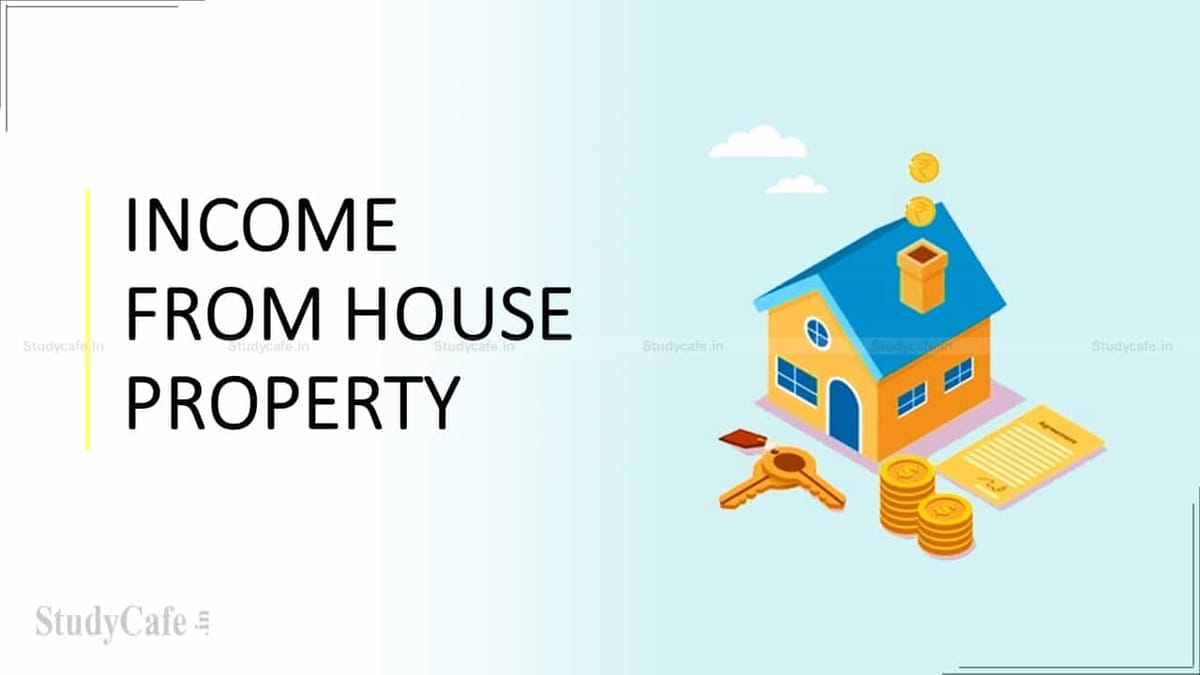INCOME FROM HOUSE PROPERTY UNDER INCOME TAX ACT
TaxBlock | Oct 18, 2021 |

INCOME FROM HOUSE PROPERTY UNDER INCOME TAX ACT
BASICS:
A house property can be anything which is attached to the land and it can be your house, your office, or can be a shop and also can be a building. The income tax does not distinguish between any of your commercial place or your house where you stay. All the properties are taxed under this head. An owner is a legal owner for objective of the income tax, owner is someone who can make use of every rights of the owner and the right should not be use of on someone’s behalf.
If the property is being used for any kind of business then it shall be taxed under the head of ‘Income from Business and Profession’.
There can be following types of house property:
1. Self-occupied property:
If someone is using the property for their own personal residential purpose then it can be known as Self-occupied property. This property can be occupied by any of the family member of the tax payer. It can be his or her spouse/parents and children. Even if the property is vacant then too it will be considered as a self-occupied property of the purpose of income tax act.
2. Let out house property:
If the house is given on rent for whole year or any of the part of the year then it will be known as Let out House Property.
3. Inherited Property:
An inherited property is a property which is hand down from parents or grandparents, it can be either self-occupied property or let out house property.
Step 1: Calculate GAV (Gross Annual Value) of the property.
Step 2: Decrease Property Tax (When paid).
Step 3: Find Out Net Annual Value.
Step 4: Decrease 30% of NAV regarding standard deduction.
Step 5: Decrease Home Loan Interest (Section 24).
Step 6: Find out Income from house property.
SECTION 24:
If the house property is self-occupied then the owner can claim up to Rs 2 Lakh on the loan interest as a deduction. This will be also applicable is the house is vacant. If the owner has rented out the property then the entire amount of home loan interest will be allow for deduction.
The amount of Rs 2 lakh will be replaced to Rs 30,000 if any of the following condition are satisfied:
Condition 1:
Condition 2:
The deduction is limited to Rs 1,50,000 under Section 80C. Condition for claiming deduction under this section is as follows:
Tax benefit under this section is up to Rs 50,000.
If the taxpayer is claiming deduction under Section 80EEA then he will be not eligible for deduction under Section 80EE. This section was added to extend the deduction of interest and for the tax benefit for loan taken during 1 April 2019 to 31 March 2020. Tax benefit under this section is up to Rs 1,50,000.
In case of any Doubt regarding Membership you can mail us at [email protected]
Join Studycafe's WhatsApp Group or Telegram Channel for Latest Updates on Government Job, Sarkari Naukri, Private Jobs, Income Tax, GST, Companies Act, Judgements and CA, CS, ICWA, and MUCH MORE!"